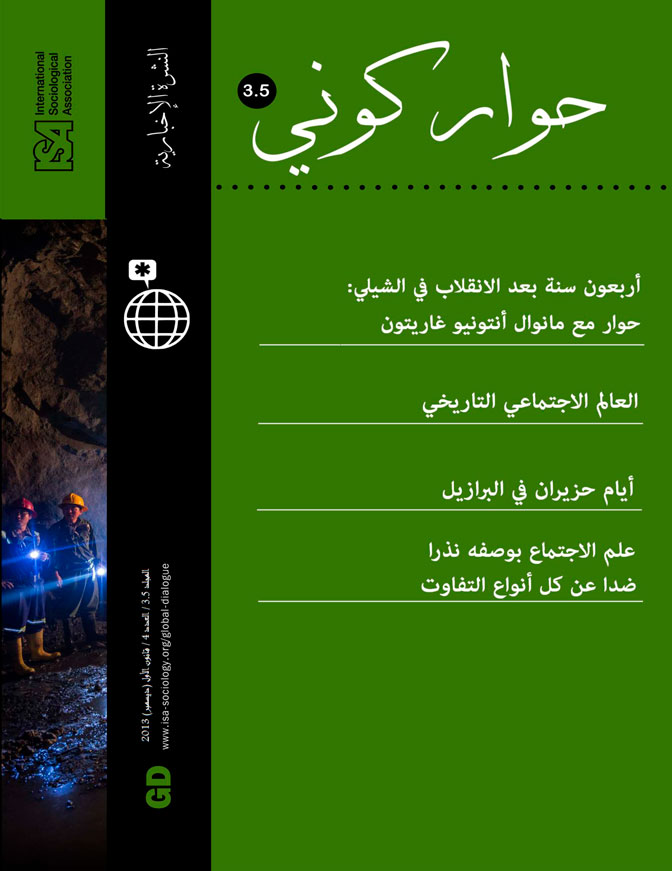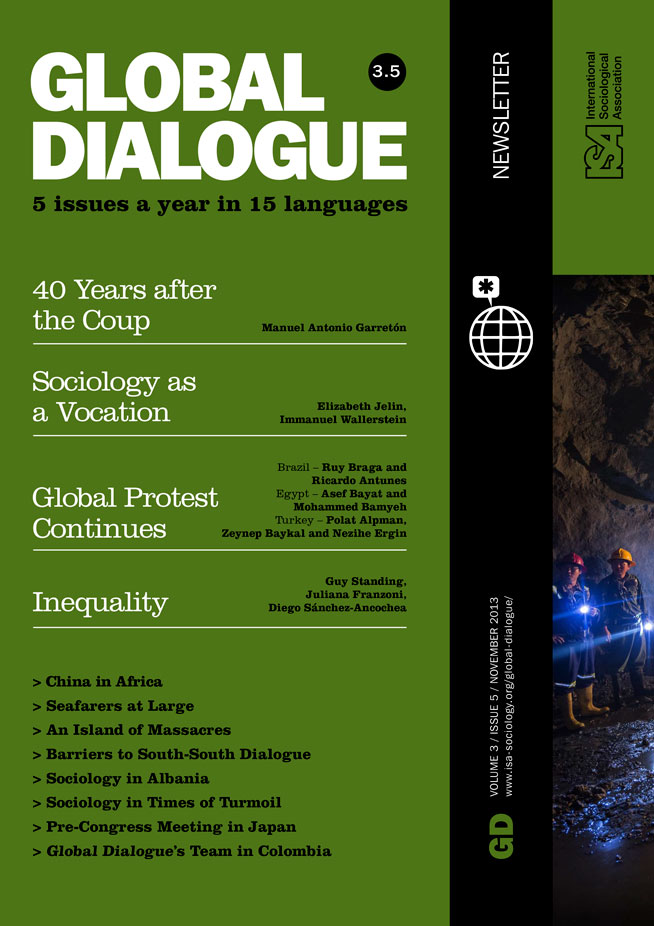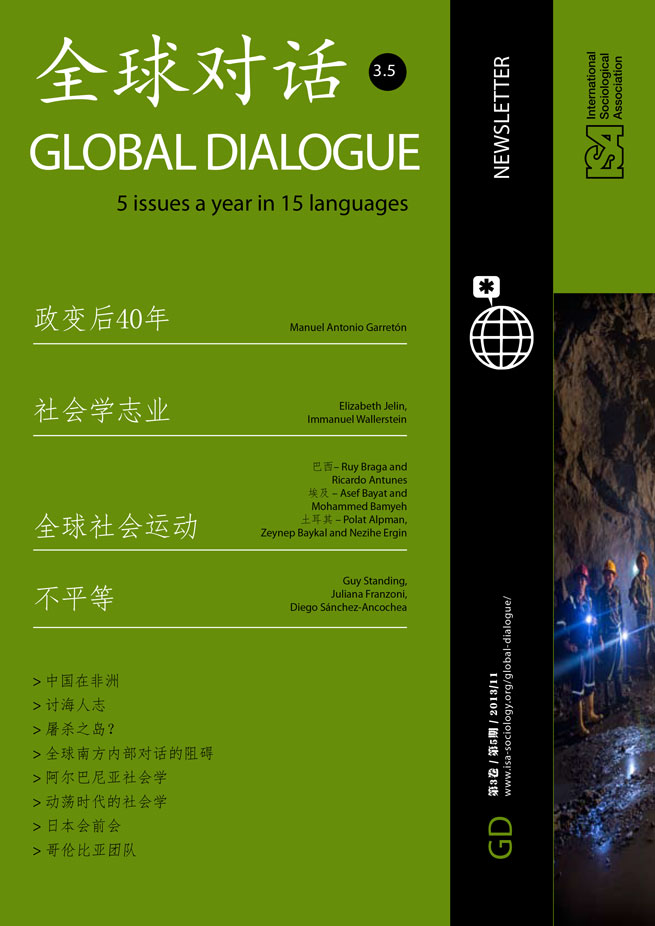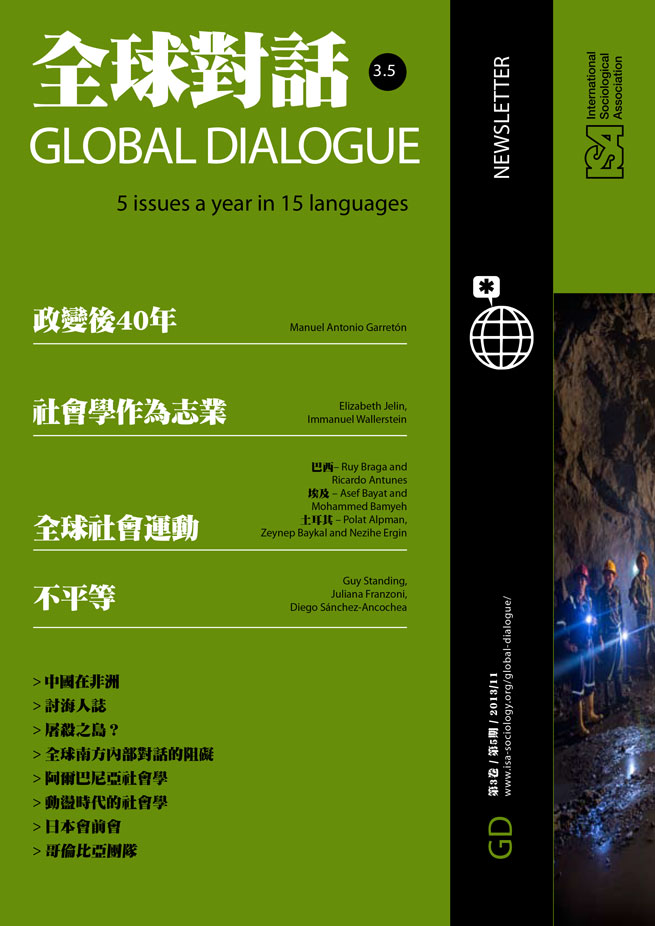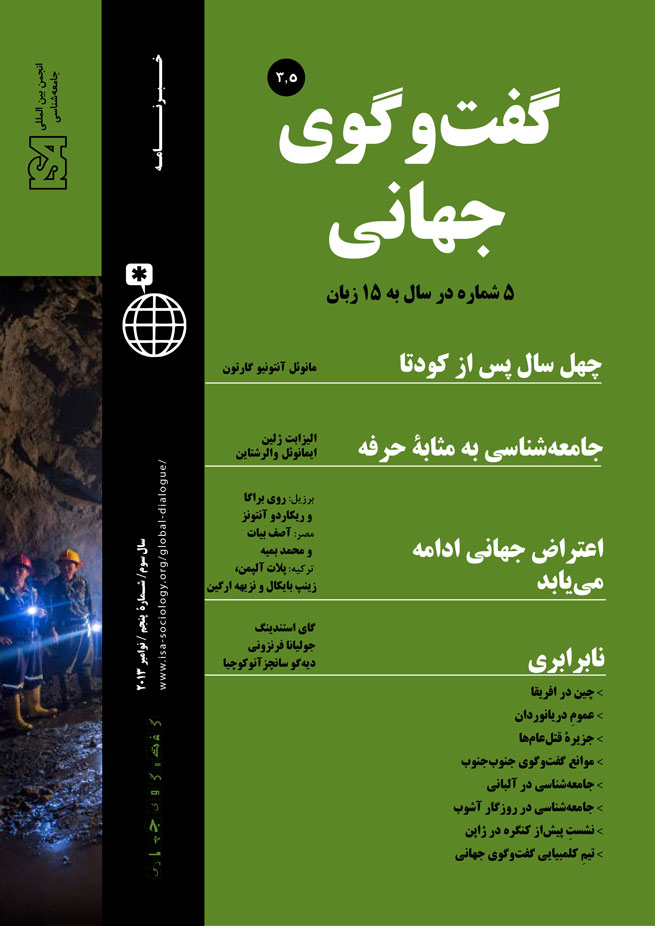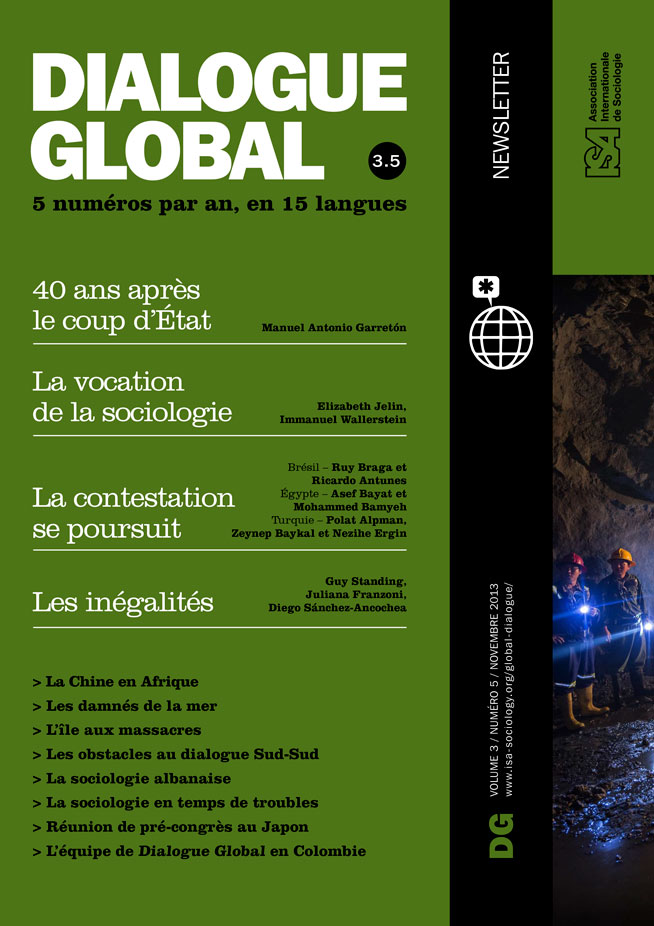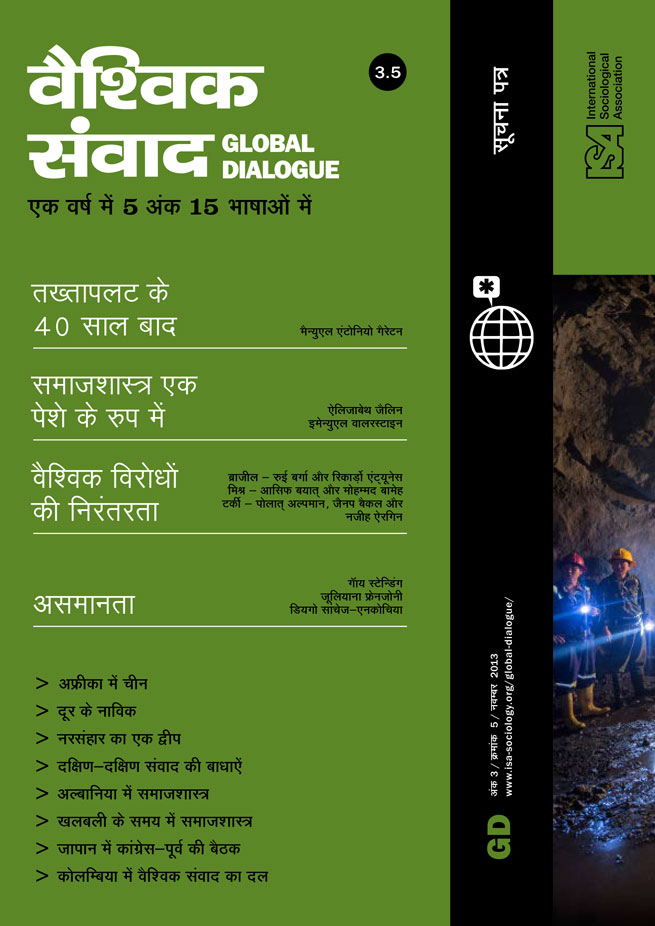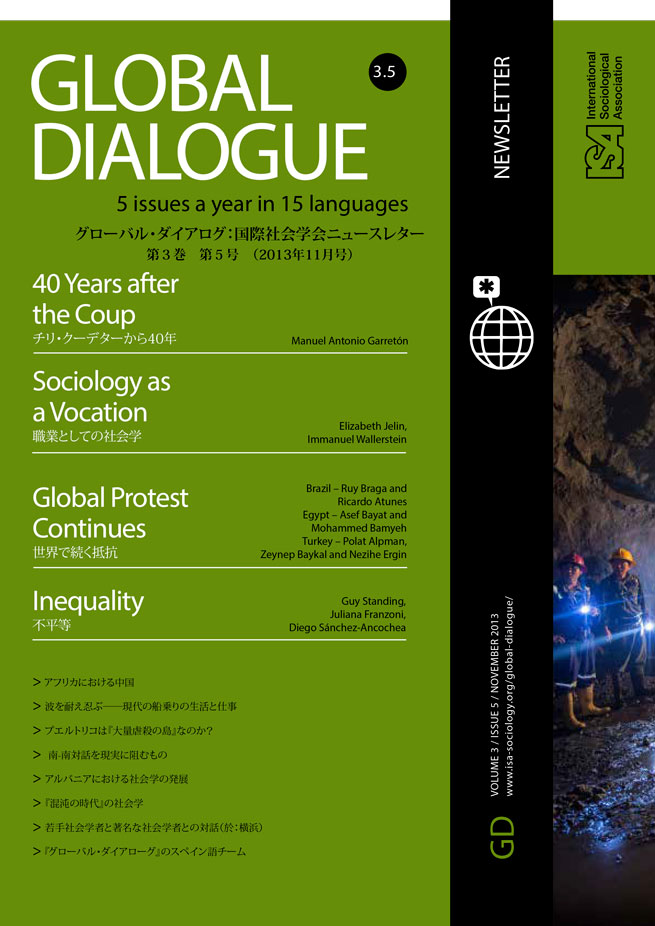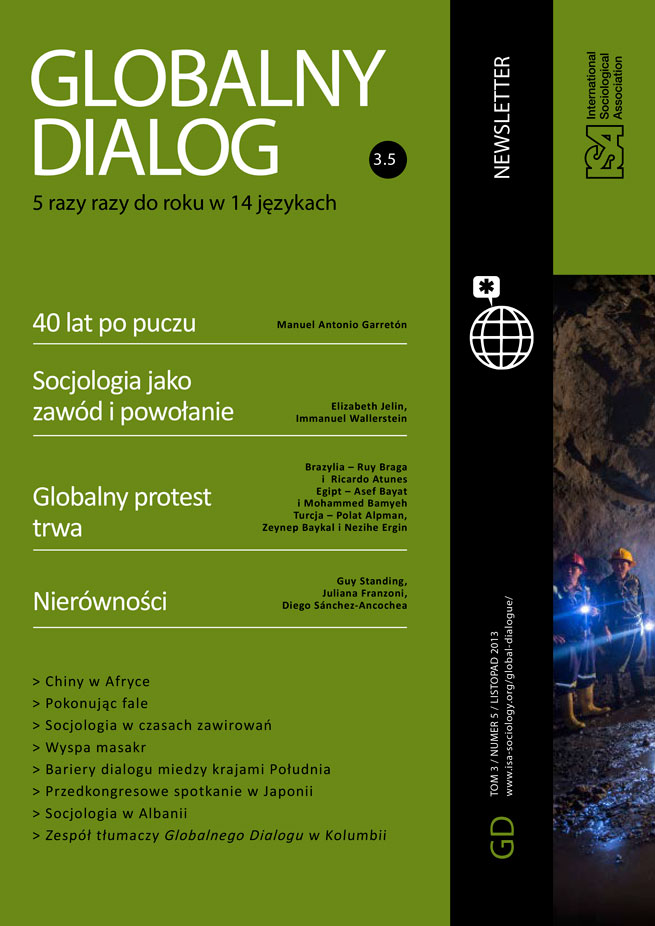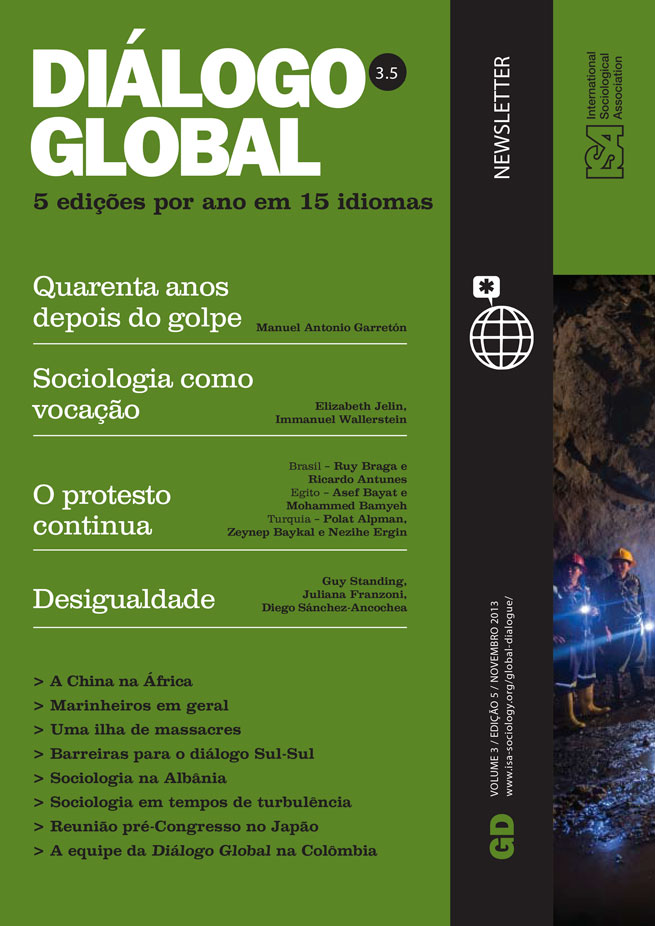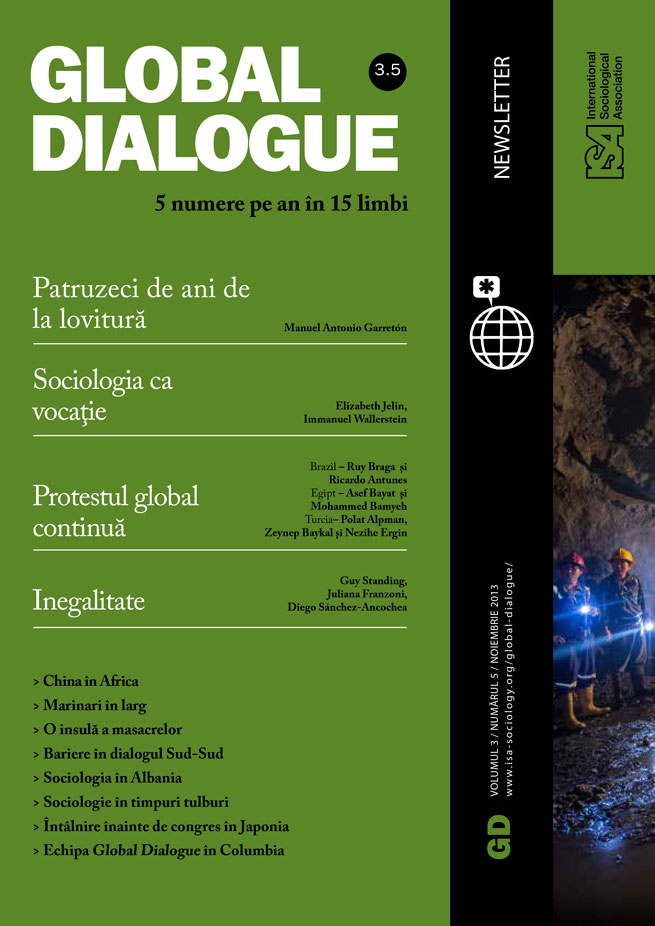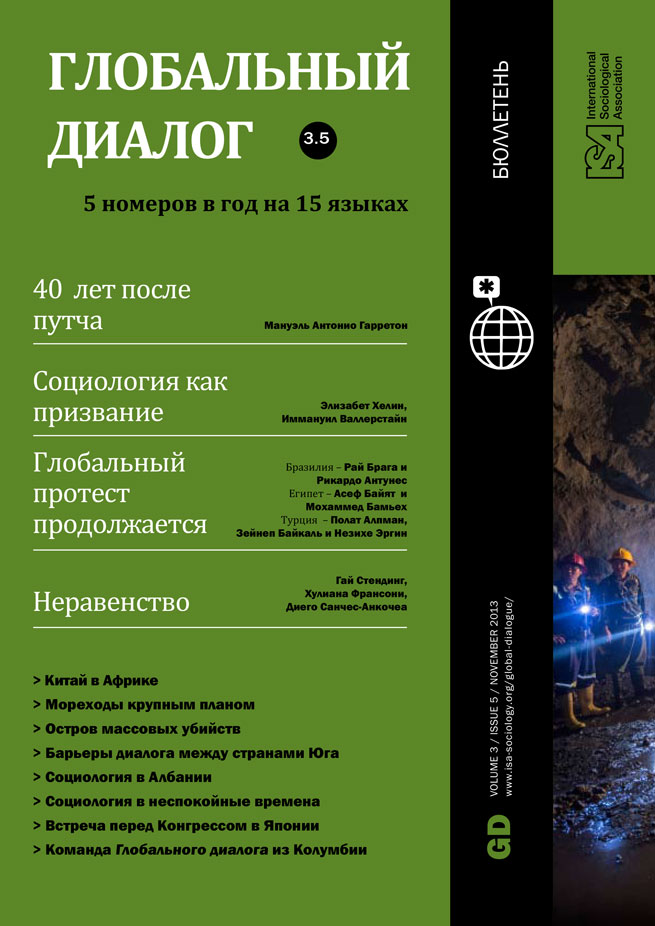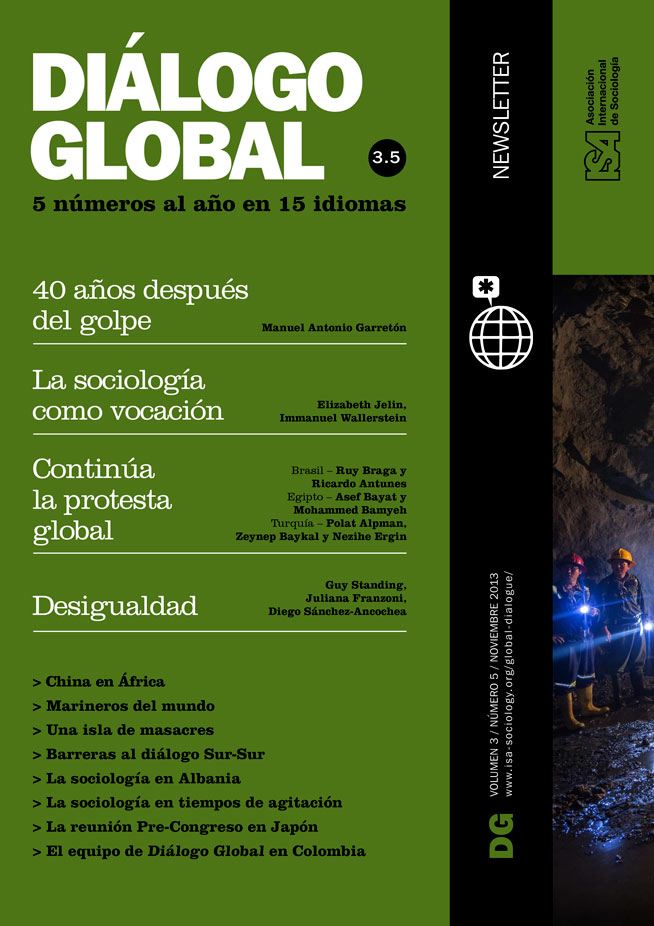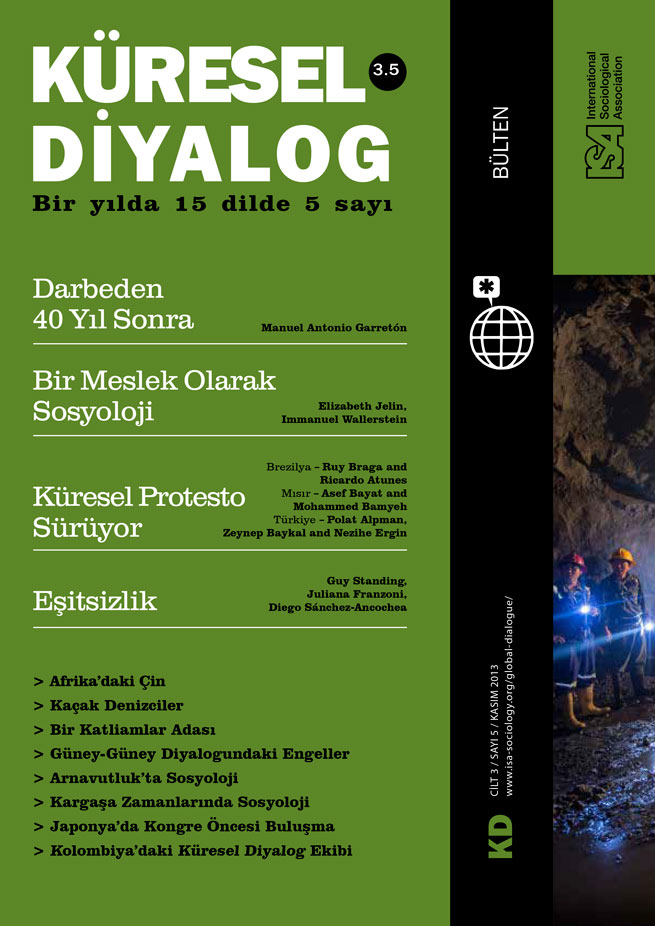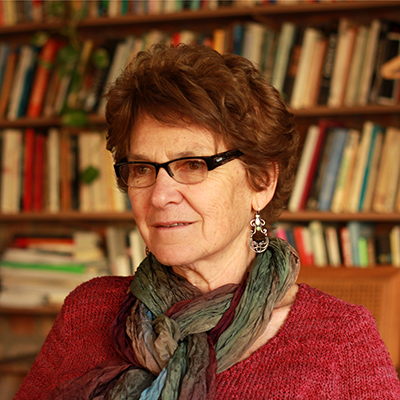Read more about Sociology as a Vocation
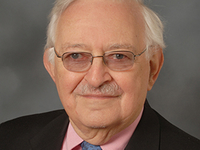
The Historical Social Scientist
by Immanuel Wallerstein
October 25, 2013
Elizabeth Jelin is an Argentinian sociologist, widely known for her work in the fields of human rights, the memory of political repression, citizenship, social movements, gender, and the family. Her many books include Los trabajos de la memoria (2002, with new edition in 2012) (published in English as State Repressions and the Labors of Memory), Fotografía e identidad (2010) (Photography and Identity), Women and Social Change in Latin America (1990). She has been a Visiting Professor at numerous universities and a member of many international academic boards, including the Social Science Research Council, United Nations Research Institute for Social Development, Institute of Labor Studies at the ILO, and the ISA. Currently she is a member of the Academic Board of the Wissenschaftskolleg zu Berlin as well as a Senior Researcher at CONICET (Consejo Nacional de Investigaciones Científicas y Técnicas of Argentina), and at IDES (Instituto de Desarrollo Económico y Social) in Buenos Aires, and Professor at the Doctoral Program in the Social Sciences, UNGS (Universidad Nacional de General Sarmiento). In 2013, she was awarded the highest prize for science in Argentina, the Bernardo Houssay National Prize for a Research Career in the Social Sciences.
I was just sixteen when the time came to choose a university professional career. The wave of modernization at the Universidad de Buenos Aires was in full bloom, and I chose the newly created Department of Sociology in the Facultad de Filosofía y Letras. It was an adolescent leap into the unknown and the mysterious. Nobody around me knew what sociology was. Yet sociology (or rather, a broader non-disciplinary social science outlook) soon became part of me, and it remained that way all my life. The historical moment was a special one: the controversies and political debates as to whether there should or should not be private education in Argentina, were fierce, and they literally spilled out on to the streets of the city. I was among those who rallied for free, lay, and universal public education. Since then, my personal life, my academic interests and my civic-political engagements have been firmly integrated into my personality. It is impossible to disentangle them, nor do I want to.
After my experience as a novice research apprentice in Buenos Aires and after doing research and teaching in Mexico, I did my doctoral studies in the US. I landed in New York City at the end of the sixties: May 1968, open admissions at City University, the protests against the US invasion in Cambodia (which I attended while in an advanced stage of pregnancy), and the beginning of the new wave of feminism reaffirmed how my personal and family life and my political beliefs are totally and inextricably integrated into my academic agenda.
Social inequalities and the struggles to attain equality and justice have been at the center of my attention. The specific topics and concerns shifted, according to the pressing trends and issues of the times as well as broader societal conditions: in the 1970s the subjects were migrants to Latin American cities, women in popular urban sectors, gender inequalities in the labor market, workers movements and labor protests; in the 1980s the subjects were new social movements and the struggles for citizenship and human rights during the processes of political transition in Latin America; and in the most recent period I have focused on struggles for the memory of political violence and repression, and the wider implications of struggles for social, economic, and cultural rights.
I care for people, I study their everyday practices from the more intimate and personal up to the collective and public-political level – thus my continuous concern with the family and the logics of care. I explore the meanings and feelings attached to action as well as their institutional and structural frames. I am interested in going beyond words, incorporating visual languages (especially photography) and actual practices. One thread that links my work is the interest in social phenomena from the standpoint of the multiplicity of temporalities and processes that they embody. To connect history and biography, rhythms and paces of change, conjunctures and the “longue durée” is, in my view, a key to understanding the social world and imagining paths into the future.
One of my passions is to see others develop their reflective abilities, to open their minds and hearts to previously unknown thoughts and experiences. There is no better compliment to my work than when someone tells me, “It made me think.” With students, this involves a constant concern about how they, as young scholars, become researchers. For decades I have devoted a good part of my time and effort to following the formative stages of young researchers. Intellectual curiosity and life experience are the initial ingredients; then comes the process of discovery, learning how to formulate one’s own questions, searching for original answers, and recognizing that one stands “on the shoulders of others.” Applying standard formulas will not do. It is not easy to nurture the intellectual imagination without imposing views and exerting the power that seniority carries with it. Breaking individualism and isolation, fostering horizontal dialogues and collaboration, have been my main tools. I have applied them while coordinating the program for training young researchers to study “Memories of Repression,” working with fellows from six Latin American countries. This is my main teaching responsibility in the Doctoral Program in the Social Sciences (run jointly by the Universidad Nacional de General Sarmiento and the Instituto de Desarrollo Económico y Social in Buenos Aires).
A relentless traveler, I have lived, taught, and researched in many places, in South and North America, Europe, and beyond. My living and working place is Buenos Aires, enriched by constant international contacts. In relation to the latter, my agenda is straightforward: to show colleagues in the centers of academic power in the dominant West that the “periphery” has something to offer the advancement of knowledge and the democratization of knowledge flows. Running contrary to the current geopolitical arrangement, the challenge is to develop truly cosmopolitan perspectives, open to what is going on in the world beyond our own locations. In fact, it was in the periphery that cosmopolitan scholarship emerged and was nurtured since scholars in the periphery have to know what is produced in the center. They also have to place that “central” knowledge in relation to their own academic location. Scholars in the center, by contrast, may consider what is produced in their own places as ipso facto universal, general, and even theoretical. In the long run, this attitude – too often embedded in institutions and systems of evaluation – has highly negative consequences, both in terms of the loss of significant and important knowledge for the advancement of our disciplines, and in terms of our values and aims towards a more equal world. Let us continue to actively work toward reversing such imbalances and inequalities.
Elizabeth Jelin, IDES (Instituto de Desarrollo Económico y Social), Argentina and Member of the ISA Executive Committee, 1986-1990
This issue is not available yet in this language.
Request to be notified when the issue is available in your language.
If you prefer, you can access previous issues available in your language:
